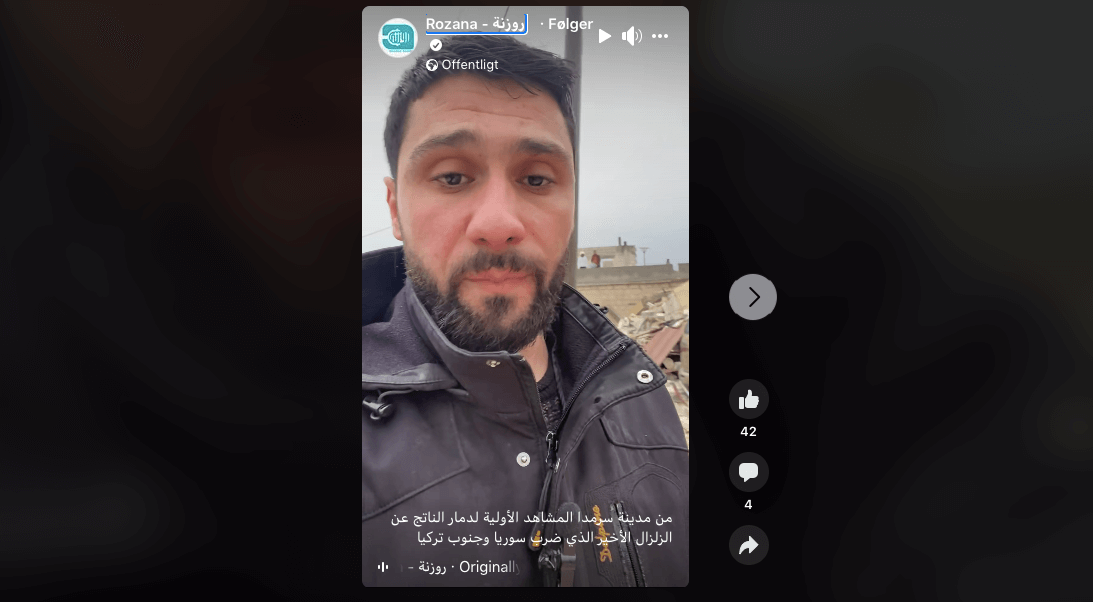
The clean up begins following a 7.8 magnitude earthquake on February 6, 2023 in Idlib, Syria. (Photo by Zana Halil/ dia images via Getty Images)
Syrian journalists are working hard under extreme circumstances to cover the Turkey-Syria earthquakes
As buildings keep collapsing and the death-toll is rising, Syrian journalists are hard at work covering the devastating consequences of the major earthquake that hit Turkey and Syria on Monday, 6 February.
Several of IMS’ Syrian media partners operate in the areas of southern Turkey and north-west Syria where devastating earthquakes have killed more than 40,000 people and left millions without housing.
“Right now, our Syrian partners are working non-stop to provide information to Syrians and other Arab speakers as well as to the international community. Their proximity to the worst hit areas means that they can provide crucial information to the people most affected by this catastrophe,” says Lilas Fawaz Hatahet, media adviser for the IMS Syria programme.
Affected but reporting
One of these media outlets is Radio Rozana. Rozana is based in Gaziantep in southern Turkey, and though they have been unable to enter their office building and access vital equipment, Rozana’s reporters are on the ground reporting on the earthquakes in whatever way they can.
“The journalists working with our partners are deeply affected by this tragedy and some of them have lost friends and family members. Therefore, it is even more impressive and awe-inspiring to see that they are able to provide essential coverage of the earthquakes to Syrians in both Turkey and Syria – as well as to the large Syrian diaspora around the world,” says Camilla Bruun Randrup, IMS programme manager for the Syria programme.
IMS has worked with Rozana Radio since 2012. Due to the difficulties of working within Syria, Rozana is located in Gaziantep, near the Turkish-Syrian border. The city’s proximity to Syria has made it a major place of refuge for displaced Syrians and is home nearly half a million people who have fled the war since 2011.
Another IMS partner that is involved in covering the earthquakes is the independent Syrian media outlet Enab Baladi, which is located in Istanbul and provides 24 hour coverage on Syrian social and political matters.
Enab Baladi has many correspondents in northern Syria, and they are not only covering the earthquakes for their own channels but are also providing reports to international media outlets that do not have people on the ground in this area.
You can support our partners in their efforts to provide vital information to people in need here.

Supporting independent Syrian media since 2011
IMS has been supporting independent media in Syria since the beginning of the Syrian war and works with media outlets both in Syria as well as exiled Syrian media. Radio Rozana and Enab Baladi are part of a network of new, independent and critical media organisations founded after the war in Syria began in 2011. The work is supported by the Swedish International Development Cooperation Agency, Sida, as well as the Danish Ministry of Foreign Affairs and the Norwegian Ministry of Foreign Affairs.
Syria ranks as number 171 out of 180 in terms of press freedom on the World Press Freedom Index, but a number of independent media organisations still keep Syrians inside and outside of Syria informed through credible and critical reporting based on professional journalistic methods and in-depth investigations.




